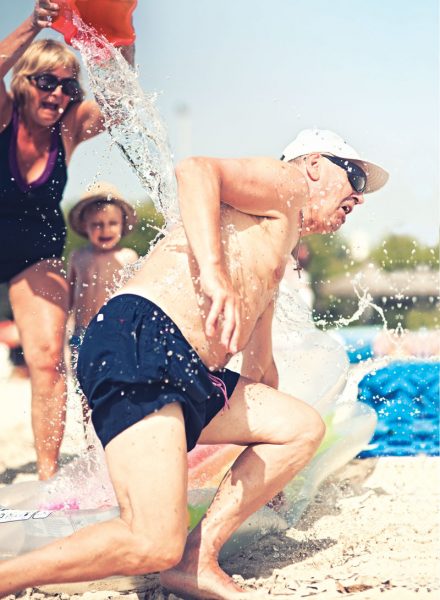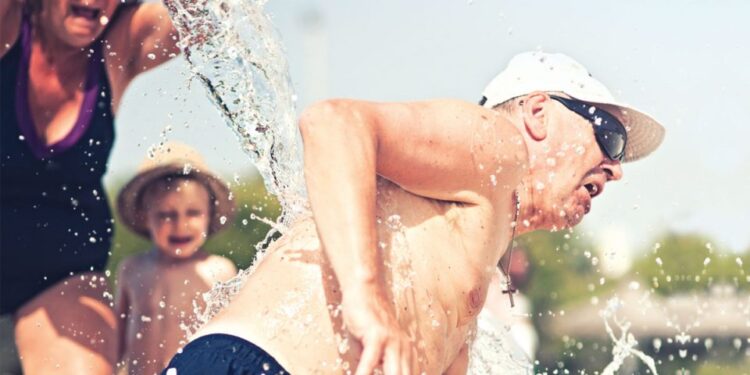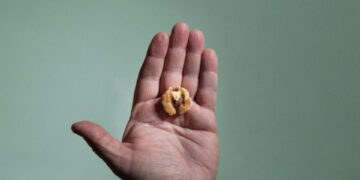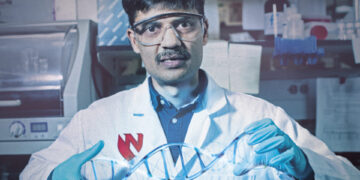The symptoms of heat exhaustion can develop swiftly and suddenly. If you are age 60 or older, not only does your risk for developing heat exhaustion intensify, but the symptoms can develop more rapidly and become more serious.
“Older people are especially prone to heat exhaustion because their bodies don’t adjust to heat as well,” says Dr. Mark Ptacek, a family practitioner at Nebraska Medicine. “Chronic medical conditions, as well as certain types of medications, can impair your ability to regulate your body temperature and perspire.”
 Heat exhaustion results from prolonged exposure to high temperatures, usually in combination with dehydration. The risk for heat exhaustion increases when the heat index—a combination of the temperature and humidity—rises to 90 degrees. A relative humidity of 60 percent or more hampers sweat evaporation, which hinders the body’s ability to cool itself, says Dr. Ptacek.
Heat exhaustion results from prolonged exposure to high temperatures, usually in combination with dehydration. The risk for heat exhaustion increases when the heat index—a combination of the temperature and humidity—rises to 90 degrees. A relative humidity of 60 percent or more hampers sweat evaporation, which hinders the body’s ability to cool itself, says Dr. Ptacek.
Heat exhaustion causes the skin to feel hot and moist, and to appear flushed. Other possible symptoms include heavy sweating, faintness, weakness, rapid pulse, low blood pressure, nausea, low-grade fever, headache, and dark urine. “If you are no longer sweating, your condition has grown more severe,” notes Dr. Ptacek.
If you or someone you know is experiencing signs of heat exhaustion, Dr. Ptacek recommends going to a cool place, sitting in front of a fan, removing extra clothing, rehydrating with cool water (iced or cold water can cause cramping), spraying or sponging with cool water, resting for two to three hours, and staying out of excessive heat for about a week. If you are nauseated, throwing up, or are very dizzy or light-headed, you should be taken to an emergency room, he says.
Dr. Ptacek recommends these tips to keep yourself well-hydrated during the summer:
- r
- Drink plenty of fluids. “We are a quart low on water when we wake up in the morning, so start your day with two glasses of water. Continue to drink lots of fluids throughout the day, even if you don’t feel thirsty. As you get older, you begin to lose your sense of thirst, and therefore you may already be at a fluid deficit.”
- Drink before you feel thirsty. When your body begins expressing thirst, this means you are starting to get behind your body’s fluid needs.
- If you are exercising and perspiring a lot, drink fluids with extra electrolytes such as sports drinks.
- Avoid drinking alcohol, which acts as a diuretic, causing your body to lose fluids and desensitizes your body’s needs for water.
- Avoid caffeine, which decreases your body’s blood volume and also acts as a diuretic, making you more dehydrated.
- Exercise in the early morning or late evening.
- Avoid sugary drinks, which can cause your body to lose more fluid.
- Wear light-colored and loose-fitting clothing.
r
r
r
r
r
r
r
r
rSixty-Plus













